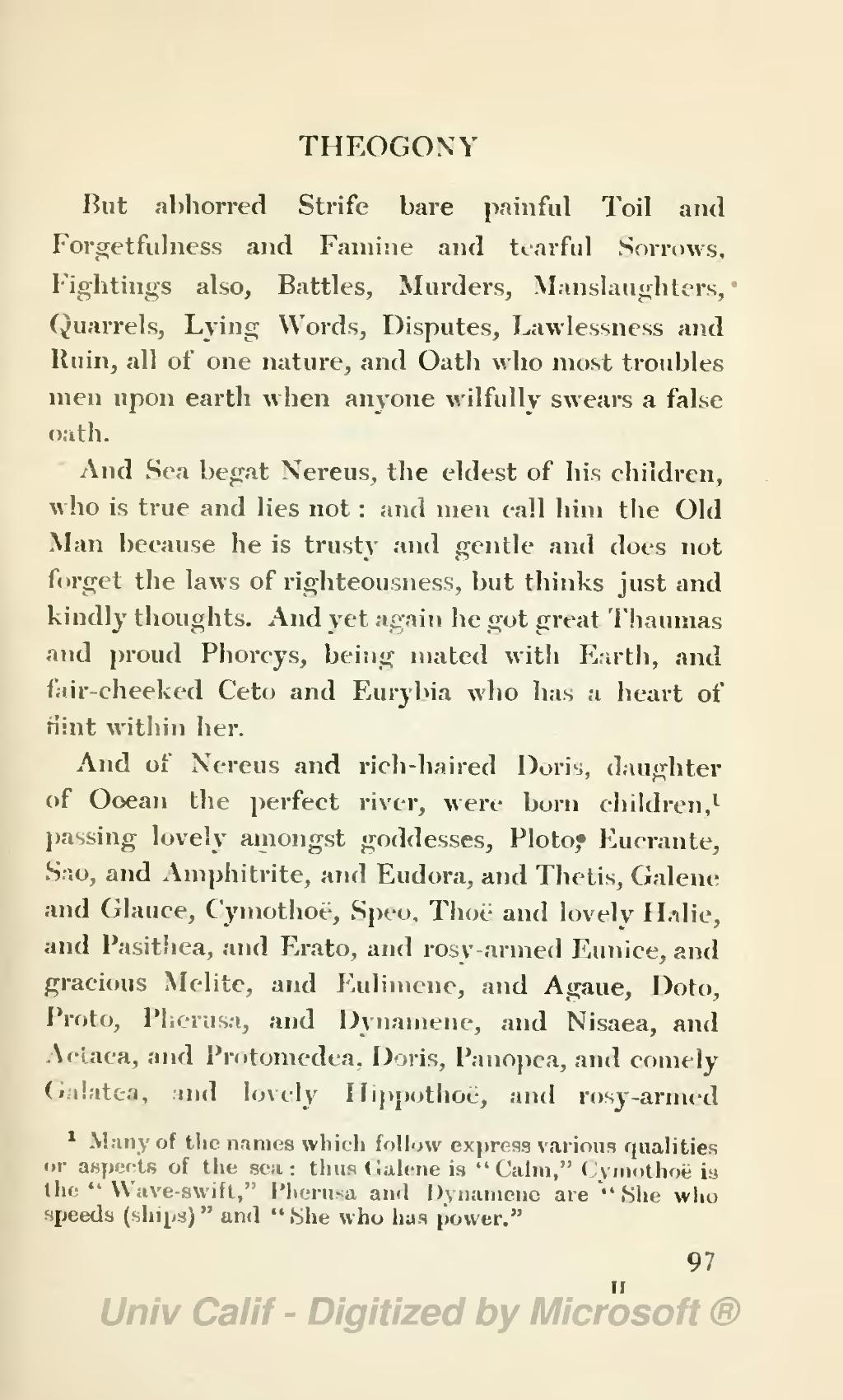THEOGONY
But abhorred Strife bare painful Toil and Forgetfulness and Famine and tearful Sorrows, Fightings also, Battles, Murders, Manslaughters, Quarrels, Lying Words, Disputes, Lawlessness and Ruin, all of one nature, and Oath who most troubles men upon earth when anyone wilfully swears a false oath.
And Sea begat Nereus, the eldest of his children, who is true and lies not: and men call him the Old Man because he is trusty and gentle and does not forget the laws of righteousness, but thinks just and kindly thoughts. And yet again he got great Thaumas and proud Phorcys, being mated with Earth, and fair-cheeked Ceto and Eurybia who has a heart of flint within her.
And of Nereus and rich-haired Doris, daughter of Ocean the perfect river, were born children,[1] passing lovely amongst goddesses, Ploto, Eucrante, Sao, and Amphitrite, and Eudora, and Thetis, Galene and Glauce, Cymothoë, Speo, Thoë and lovely Halie, and Pasithea, and Erato, and rosy-armed Eunice, and gracious Melite, and Eulimene, and Agaue, Doto, Proto, Pherusa, and Dynamene, and Nisaea, and Actaea, and Protomedea, Doris, Panopea, and comely Galatea, and lovely Hippothoë, and rosy-armed
- ↑ Many of the names which follow express various qualities or aspects of the sea: thus Galene is "Calm," Cymothoë is the "Wave-swift," Pherusa and Dynamene are "She who speeds (ships)" and "She who has power."
97
II

